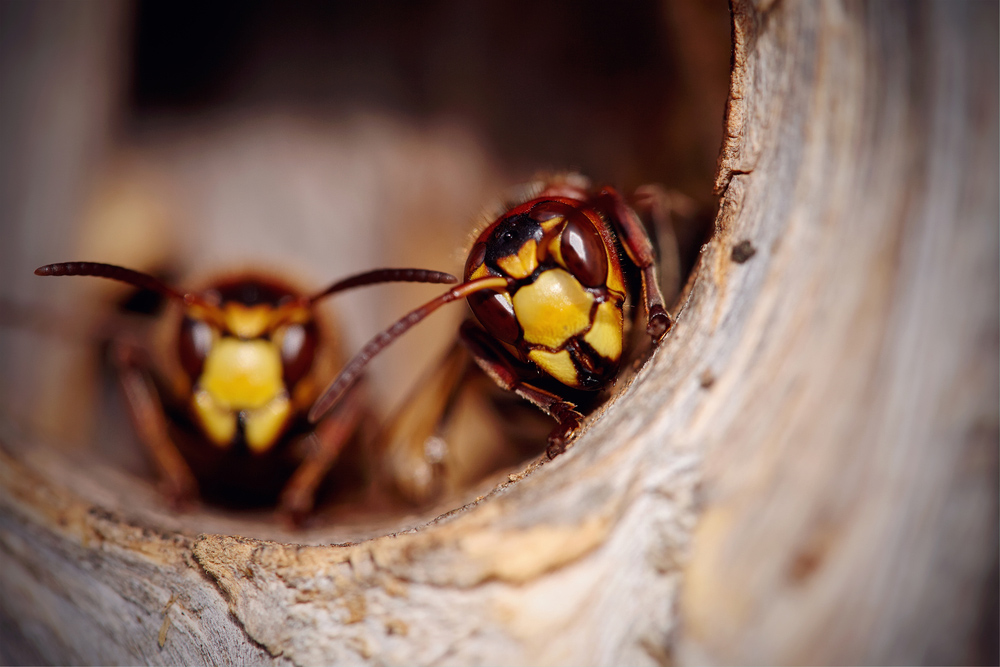During the warmer months, wasps can make a nice outdoor get-together a terrible experience. People know these stinging insects for being very protective and giving painful stings. You’ll be glad to know that there are natural wasp repellents that can help you enjoy your outdoor space without having to deal with wasps.
How to Understand Wasps
It’s important to know the different kinds of wasps you might face before we talk about how to get rid of them. Yellow jackets and paper wasps are the most popular ones to blame. Paper wasps are territorial and build their nests under eaves and in other safe places. Yellow jackets are violent scavengers.
Natural Ways to Keep Wasps Away
- Peppermint Oil: Pests like wasps don’t like the strong smell of peppermint. A peppermint spray that you make yourself can be made by mixing water and a few drops of peppermint oil. Spray this mixture in places where wasps like to hang out, like around doors, windows, and roofs.
- Clove Oil: Another natural insecticide that wasps don’t like is clove oil. Clove oil mixed with water sprayed on trouble spots can help keep them away.
- Citrus: Wasps naturally don’t like the smell of citrus fruits. You can benefit from this by putting orange peels in places where wasps are a problem.
- Vinegar: A mix of vinegar and water can get rid of the problem. They are less likely to build nests nearby because the strong smell of vinegar makes it harder for them to find their way and talk to each other.
- Trap Made of Soap and Water: To make an easy trap, fill a container with soapy water. Hang the jar or put it somewhere where wasps like to hang out. Wasps are drawn to water, but the soap breaks the surface tension of the water, which drowns them.
Natural Ways to Keep Nests Away
Peppermint plants: Putting peppermint plants around your yard can naturally keep wasps away. They tend to stay away from places that smell like mint.
Wasps are very protective, so they won’t build a nest close to one that’s already there. You can buy fake wasp nests or use paper bags to make your own. Put these up around your property to keep them from building nests.
Keep your outdoor space clean. Wasps are drawn to trash and food scraps. Clean up after outdoor meals and lock your trash cans to keep your outdoor space free of these things that attract them.
Preventative Steps
The best way to deal with wasps is to avoid them. Here are some things you can do to make your home less appealing to them:
- Cover Food and Drinks: If you’re eating or drinking outside, cover your food and drinks so wasps don’t get drawn to the smells.
- Maintenance Checks: Make sure you check your property often to find places where birds could nest, like eaves, attics, and outdoor buildings. Larger outbreaks can be stopped by finding them early.
- Seal Points of Entry: Make sure that your doors and windows are closed to keep wasps out. If you need to, put up screens to keep them out.
- Wasps are drawn to bright colours, especially ones with floral designs, so stay away from them. Choose dimmer outdoor furniture and clothes to make them less interested.
- Professional Pest Control: If you have a lot of wasps or someone in your family is allergic to their stings, you should talk to a professional pest control service.
Finally, natural deterrents, repellents, and preventative steps can help you keep wasps away from your outdoor areas. These insects that sting don’t like the smell of peppermint, lemon, or cloves. Wasps will be less likely to build nests on your property if you keep your outdoor space clean and free of food scraps, seal off any entry points, and use fake nests. If you have a wasp problem that won’t go away, especially if someone in your family has allergies, you should get help from a professional pest control service.
Wasp Control Newmarket, We understand that wasps serve a vital role in our ecosystem as beneficial and visually striking insects. They contribute to pollination, control pests, and typically carry out their tasks without causing disruptions to humans.
